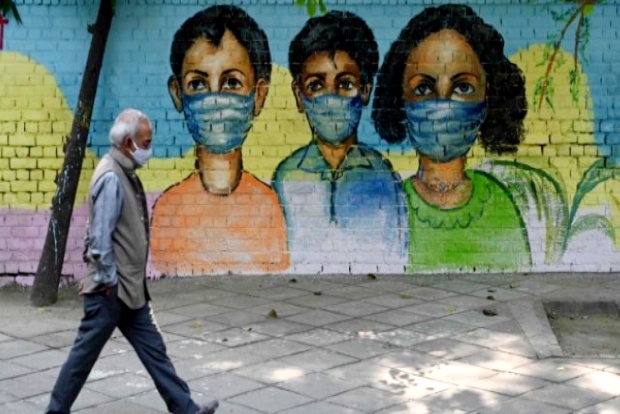Begin typing your search...
Not possible to end this virus, pandemic viruses end up becoming part of ecosystem: WHO official
The World Health Organization (WHO) had declared the outbreak a 'public health emergency of international concern' on January 30, 2020, and a pandemic on March 11, 2020.

New Delhi
It is not possible to end the COVID-19 virus as such viruses never go away and end up becoming part of the ecosystem, a top WHO official said on Tuesday but asserted that it is possible to end this year the public health emergency caused by COVID-19 with a collaborative approach to fix inherent inequities in the system.
Speaking at the World Economic Forum's online Davos Agenda 2022 summit, the World Health Organization's Health Emergencies Programme Executive Director Michael Ryan said what needs to be done is to ensure a really low level of disease incidence with the maximum vaccination of the entire world population.
''That will be the end of the public health emergency in my view and that would be an end to this pandemic,'' he said while adding that there was a chance to achieve it this year itself.
The worldwide spread of the deadly virus, which was first reported in China's Wuhan in late 2019, has seen more than 33 crore confirmed cases globally and over 55.5 lakh deaths so far.
The World Health Organization (WHO) had declared the outbreak a 'public health emergency of international concern' on January 30, 2020, and a pandemic on March 11, 2020.
However, the emergence of its fast-spreading Omicron variant, resulting in the re-introduction of national lockdowns, travel bans and quarantines in various parts of the world, has reinforced the uncertainty of the COVID-19 pandemic.
''We won't end the virus this year. We may never end this virus. Pandemic viruses end up becoming part of the ecosystem,'' Ryan said.
''What we can end is the public health emergency this year, but the issue is about deaths, about hospitalisations and about the destruction of social, economic and political systems that have caused the tragedy. The virus is just a vehicle,'' he said.
The WHO official said it is the reaction of the society to the virus that caused the tragedy as he blamed ''the inequity including in access to health facilities and all those long-standing social inequities and those huge inequities not just between countries but also the internal inequities within countries''.
''Yes, we have a chance to end this public health emergency this year if we do right things to fix these inequities. But the reality is this tragedy will continue,'' he said.
Ryan also sought to warn against an emerging narrative on whether the COVID-19 pandemic is on its way to becoming endemic in nature.
''Endemic just means it is here forever. Even endemic diseases kill hundreds of thousands of people and we should not think that a pandemic becoming endemic is the good thing,'' he added.
Speaking at the same session, Oxfam International Executive Director Gabriela Bucher said it is possible to end the pandemic if we overhaul the model radically to ensure a truly equitable distribution.
Adar Poonawalla, CEO of Serum Institute of India, said the definition of the pandemic is evolving every day. ''I am not an expert, but there will be a point when we reach a certain level of vaccination, hopefully by the end of this year, when everyone is double or triple vaccinated, then probably we can say that. And also that would depend on what kinds of new variants emerge and hospitalisation levels remaining under control,'' he added.
He was replying to a question on whether an end to the pandemic could be in sight.
Seth F Berkley, CEO of Gavi vaccine alliance, said the COVAX programme has been successful, but not without its speed bumps along the way.
The WHO has also been criticising the unequal distribution of vaccines and has been asking manufacturers and other countries to contribute to COVAX, the UN-backed programme for supplying vaccines to poor countries. So far, it has delivered 1 billion doses.
According to WHO, 36 of its 194 member countries have vaccinated less than 10 per cent of population and 88 have inoculated under 40 per cent.
Poonawalla, whose Serum Institute of India has been a key member of GAVI alliance, said his company is ready to support the pool towards reaching global vaccine equity.
John Nkengasong, Director of Africa Centres for Disease Control and Prevention, said greater cooperation and greater solidarity will be the way forward if we want this pandemic to end.
Visit news.dtnext.in to explore our interactive epaper!
Download the DT Next app for more exciting features!
Click here for iOS
Click here for Android
Next Story



